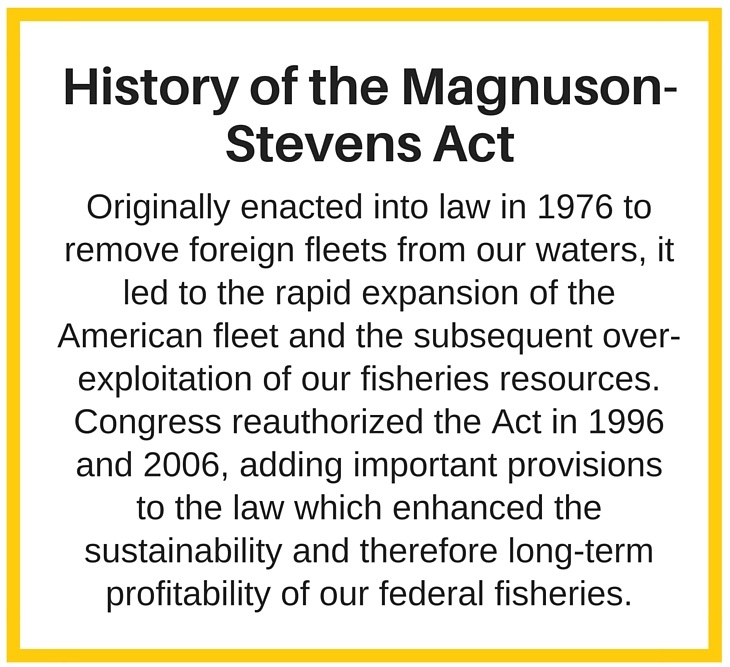Oceans and Combatting the Climate Crisis
Our oceans, which make up over 70% of the Earth’s surface, are vital to our economy and ecosystems. The ocean regulates global temperature, generates oxygen, provides essential food supplies and is the planet’s largest carbon sink. But climate change from the burning of fossil fuels poses significant risks to the health of our oceans. .
As the Earth’s largest carbon sink, the ocean absorbs 1/3 of the carbon dioxide humans emit into the atmosphere, which is equivalent to 22 million tons per day. But, the absorption of atmospheric carbon dioxide is changing the ocean’s chemistry, causing it to acidify at an alarming rate. Ocean acidification threatens the growth and reproduction of many marine species.
Climate change is also warming the world’s oceans, which have already absorbed over 90% of the heat trapped by the greenhouse gases humans emit into the atmosphere. Warmer ocean temperatures cause sea level rise, increase the frequency and severity of storms, and harm marine ecosystems, threatening coastal communities across the U.S. and its territories.
Subcommittee Democrats are using the best available science to make informed decisions protecting the oceans, ecosystems, and coastal communities we treasure from the consequences of climate change. The ocean is an essential component of the climate solution. Ocean ecosystems sequester carbon and mitigate the impacts of severe weather events. We must restore and protect coastal blue carbon ecosystems such as mangroves, salt marshes and sea grasses. These coastal ecosystems absorb carbon dioxide out of the atmosphere and safely store it at a rate of up to four times that of forests on land. They also reinforce coastlines, limiting the impacts of erosion, flooding and storms all while providing habitat for wildlife and fisheries. Other natural solutions include supporting living shorelines, a shoreline stabilization technique which provides wildlife habitat and natural resilience to communities threatened by rising sea levels, intensified storms, and coastal erosion.
Responsibly Helping Wildlife Abroad
Trophy hunting occurs when the primary motivation of a hunt is to obtain animal parts, such as tusks, hides, or the taxidermized animal. American trophy hunters often travel to Africa seeking the most sought-after animal species known at the Big Five: African buffalo or cape buffalo, African elephants, African leopards, African lions, and southern white rhinoceros. Between 2005 to 2014, American hunters imported 32,500 trophies of the Big Five species into the United States.
Proponents of trophy hunting argue that hunting fees benefit species conservation and support local communities. But evidence for this is convoluted at best, and data shows that trophy hunting has low economic value as a wildlife-related activity. In reality, a study of eight African countries revealed that less than 1% of the $17 billion generated from tourism spending came from trophy hunters.
Democrats have sought to strengthen protections for endangered and threatened species by requiring the U.S. Fish and Wildlife Service to certify that any international trophy hunting of those species can be proven to enhance the conservation of the species before permitting the import of a trophy.
International wildlife conservation can be complicated because countries, nonprofits, and indigenous people have to work together. No matter what, Committee Democrats believe that human rights and the safety and prosperity of indigenous people should take utmost precedent.
Sustainable Fisheries: Keeping the Magnuson-Stevens Act Strong

The Magnuson-Stevens Fishery Conservation and Management Act (also referred to as the Magnuson-Stevens Act or MSA) is the preeminent law governing the management and conservation of our fisheries in federal waters, which generally extend between 3 and 200 nautical miles offshore.
The MSA ensures long-term sustainability for American fisheries, giving consumers a growing supply of domestic seafood. However, long-term fisheries management must now consider the impacts of climate change. Subcommittee Democrats secured historic funding for Climate Ready Fisheries in the Inflation Reduction Act. These funds will support the inclusion of climate and environmental change data into fisheries management decisions and allow for the conservation and protection of vulnerable fisheries and coastal ecosystems across the country.
Combatting the Extinction Crisis
The loss of biodiversity is one of the most urgent environmental problems we face today. Species around the world are threatened by human-related activities, from climate change and habitat destruction to wildlife trafficking. We are currently facing the 6th mass extinction in history, with species disappearing approximately 100 times faster than the normal rate.
Historically, Congress has worked in a bipartisan way to protect endangered species and advance conservation efforts. In 1973, The Endangered Species Act (ESA) was signed into law by President Nixon after it passed through Congress with overwhelming bipartisan support. The ESA is America’s strongest defense against mass extinction–– it ensures that land development and other activities are conducted in a way that protects imperiled species and the habitat they need to survive and recover. Over 1,600 fish, wildlife, and plants are currently listed under the ESA, and since its enactment, an extraordinary 99% of listed species, including the bald eagle and the grizzly bear, have been spared from extinction. The ESA is not only remarkably successful, but it is also extremely popular: a study by PBS News found 4 out of 5 Americans from across the political spectrum support the ESA.
Other important wildlife conservation efforts at the Federal level include the Migratory Bird Treaty Act (MBTA), a 1918 law which has protected more than 1,000 species of migratory birds from overhunting and industrial activities, and the National Wildlife Refuge System, the only network of federal lands specifically devoted to wildlife conservation.
In recent years, Republicans have worked to undermine our nation’s bedrock species protection laws, decrease funding for conservation initiatives and even permit drilling in precious places like the Arctic National Wildlife Refuge. Democrats are working to strengthen laws like the ESA and MBTA, increase funding for conservation efforts, expand the National Wildlife Refuge System, and secure funding for the recovery of imperiled species[MB1] .
Species conservation is crucial not only for protecting ecosystems but also plays an important role in strengthening the resilience of the communities that depend upon them. Congress must continue to work towards protecting wildlife at home and abroad to preserve biodiversity for future generations.
Supporting Sportsmen & Women as Conservationists
Some of the earliest conservationists were sportsmen like President Theodore Roosevelt, who advocated for the preservation of wild places so that Americans would always be able to enjoy hunting and fishing in the outdoors. In the century since his presidency, conservationists and sportsmen have worked together to implement sound environmental policies that enhance habitat protection and increase public lands access. Promoting outdoor activities, including ethical hunting and fishing, is key to encouraging Americans to spend time outdoors.
Democrats prioritize improving and developing land, water, and wildlife conservation efforts through public programs and private partnerships. In conjunction with these efforts, Democrats support improving access for recreation on federal lands, including increasing opportunities for hunters and anglers who engage in ethical practices such as using non-toxic materials.
Eliminating Illegal, Unregulated, & Unreported Fishing & Seafood Fraud
Illegal, unregulated and unreported (IUU) fishing is any unlawful practice that does not comply with national, regional, or global fisheries management or conservation requirements.
- Illegal fishing occurs when vessel operations violate the laws of a fishery such as those regulated by the Regional Fishery Management Organizations (RFMO), which are international bodies dedicated to the sustainable management of fisheries.
- Unreported fishing is fishing that is either misreported or unreported to the relevant national authority of RFMO.
- Unregulated fishing is fishing by vessels flying the flag of a country not part to a relevant RFMO.
IUU fishing is estimated to account for 20% of fish catches globally, with an estimated annual economic loss of $26 to $50 billion. IUU fishing is a major driver in the decrease of global fish stocks, threatening marine ecosystems, and jeopardizing food security and the American economy.
Illegal fishing is also a threat to our national security.
- Illegal fishing has well-documented ties to the drug trade, human trafficking, and slavery
- Given that 91% of seafood consumed in the United States is imported or re-imported, it is critical to ensure that Americans are not unknowingly supporting these activities
- Seafood fraud, the intentional mislabeling of seafood products to increase profit and dodge regulations, can have serious consequences for human health, as certain species and countries of origin are more likely to produce seafood contaminated with heavy metals and industrial pollution
Democrats have sponsored and passed bipartisan legislation to strengthen enforcement mechanisms to stop IUU fishing and implementing legislation for the Agreement on Port State Measures to Prevent, Deter, and Eliminate Illegal, Unreported, and Unregulated Fishing (PSMA). Moving forward, Democrats will continue to work to protect American fisheries, stop human rights abuses in the seafood supply chain, and strengthen coastal economies.
Addressing Climate Change and Drought in the West
Climate change-induced drought imperils our nation’s ecosystems and threatens to dramatically reduce drinking, industrial, and agricultural water supplies. The resulting impacts to water reliability disproportionately affect rural and tribal communities.
In the coming years, many western states will see growing populations coupled with increasingly frequent and severe drought driven by climate change. Historic records and scientific assessments demonstrate that recent droughts have been worsened by climate change. For example, the 2012-2016 drought in California was the state’s worst in 1,200 years. And across the western and central U.S., 2022 drought conditions caused an estimated $21 billion in economic losses.
Current drought conditions in the western states can be found through the U.S. Drought Monitor:

The Subcommittee on Water, Wildlife and Fisheries is working hard to advance federal water policy that promotes future drought resiliency through forward-thinking, collaborative policy solutions.
During the 117th Congress, Democrats delivered more than $15 billion for water projects and programs under the Natural Resources Committee’s jurisdiction through just two bills: the Inflation Reduction Act and Infrastructure Investments and Jobs Act. This once-in-a-generation level of investment is roughly ten times the Interior Department’s annual budget for water-related activities.
These investments include:
- $4 billion for drought response funding for the Colorado River Basin and similarly affected river basins, including for projects supporting water conservation and climate resilience.
- $3 billion for tribal water rights settlements and tribal water projects, which nearly matches the overall amount provided by Congress for tribal water settlements over the previous four decades. The federal government has a trust responsibility to protect tribes’ rights to access and use the water resources they are legally entitled to, yet many tribal water rights remain undeveloped and unprotected. To support clean water access, Congress has historically approved and funded Indian water rights settlements to provide water security for tribes and pay for water infrastructure serving tribal communities.
- $1 billion for water recycling projects, which have the potential to provide virtually drought-proof water supplies for tens of millions of people each year in a responsible and environmentally sustainable manner.
- $1 billion to support water efficiency projects, restore aquatic ecosystems, and improve watershed health.
Still, while these investments will deliver significant relief to many communities in the years to come, much more still must be done to manage climate-related drought and invest in communities, especially underserved and Indigenous communities that are disproportionately burdened by the climate crisis and too often left behind. Subcommittee Democrats continue to advance solutions to support new water infrastructure, including drought-proof water recycling projects like well-designed desalination and water recycling projects. Subcommittee Democrats are also working to advance legislation to expand the use of modern water management tools, data, and technologies; support communities lacking clean drinking water; advance tribal water rights settlements that fund tribal water infrastructure; and promote watershed health for the benefit of downstream communities, fish, and wildlife.
Promoting Healthy River Ecosystems that Support Western State Economies
Committee Democrats are working to protect and promote healthy river ecosystems that support western state economies. Fish and wildlife, and the people whose livelihoods depend on them, need water to survive and thrive.
The relationship between healthy watersheds and robust western economies has been demonstrated time and again:
- The Pacific region’s commercial and recreational fishing industry generates nearly $37 billion in sales per year, provides more than $8 billion in income, and sustains over 200,000 jobs.
- Water that flows through the California Delta and into the San Francisco Bay protects water quality for cities and agriculture while also helping to protect native fisheries and the thousands of jobs that depend on their health.
Democrats are committed to fighting the effects of climate change and supporting solutions that ensure reliable water resources for the benefit of communities, ecosystems, and economies.
Providing Water Supply Certainty for Tribes

The federal government has a trust responsibility to protect tribes’ rights to access and use the water resources they are legally entitled to. Despite this legal responsibility, many tribal water rights today still remain largely undeveloped and unprotected with 48 percent of homes in tribal communities lacking access to reliable water sources, clean drinking water, or basic sanitation. Additionally, Native American households are 19 times more likely than white households to lack complete running water and indoor plumbing.
To improve clean water access and address the federal government’s legal obligations, Congress has historically approved and funded Indian water rights settlements, which are negotiated legal agreements that secure tribal water rights and provide the water infrastructure needed to treat and deliver water.
Tribes typically have the most senior claims to water in a river basin. Settlements quantify and secure legal recognition of these rights, protecting the water supply for tribes and providing certainty to all water users in a basin. Indian water rights settlements help ensure water security for entire communities, a matter of paramount importance for regions combating severe drought exacerbated by climate change.
Indian water rights settlements have been the preferred alternative to litigation for tribes, states, and the federal government, including every Republican and Democratic administration, for decades. Negotiated settlements relieve taxpayers from significant legal liability; support cooperative solutions that benefit all stakeholders; and prevent costly, protracted, and divisive water rights litigation across the western states. Settlements also help tribal communities move past the health and economic consequences caused by a lack of secure access to water.
Committee Democrats are fighting for reliable and sufficient funding to support existing and future congressionally approved tribal water settlements. Under Chair Grijalva’s leadership last Congress, Committee Democrats helped enact new tribal water settlements and deliver significant investments for tribal water projects, including $2.5 Billion for tribal water rights ssettlements in the Infrastructure Investments and Jobs Act.
Supporting Sustainable Hydropower
Committee Democrats support responsible approaches to hydropower production that adhere to environmental laws. Most hydropower dams—whether owned by the Bureau of Reclamation, other governmental agencies, or private entities—were built several decades ago, before a recognized need to consider climate change and fish passage in construction.
When improperly sited or operated, hydropower projects can cause serious harm to fish and wildlife, water quality, recreational opportunities, and tribal resources. Hydropower facilities can obstruct fish access to crucial habitat areas for spawning, leading to declines in fish populations and, in some places, devastating impacts to the tribes that have depended on these fisheries for generations.
Federal licenses for the construction and operation of nonfederal hydropower projects are typically issued for 50 years, meaning many dams across the country are currently operating on licenses granted prior to the passage of modern environmental laws. Dams undergoing the relicensing process are eligible for year-to-year license extensions, which allow aging dams to continue operating without the facility upgrades necessary to comply with current law. This issue will likely gain urgency in the years to come as nearly a fifth of all federal hydropower licenses are set to expire by December 2026. Committee Democrats are working to ensure robust environmental and tribal protections for existing and future hydropower projects.





